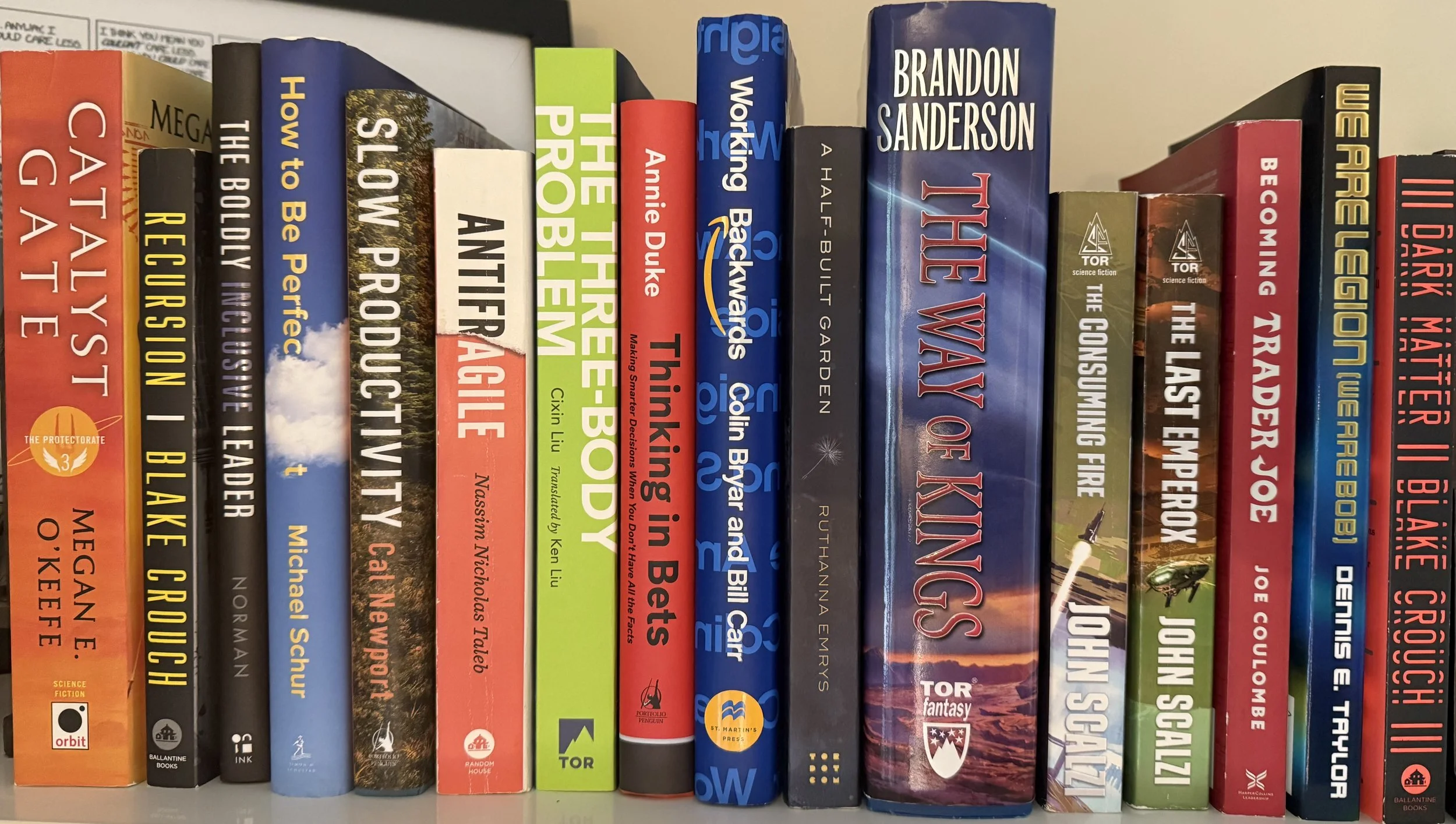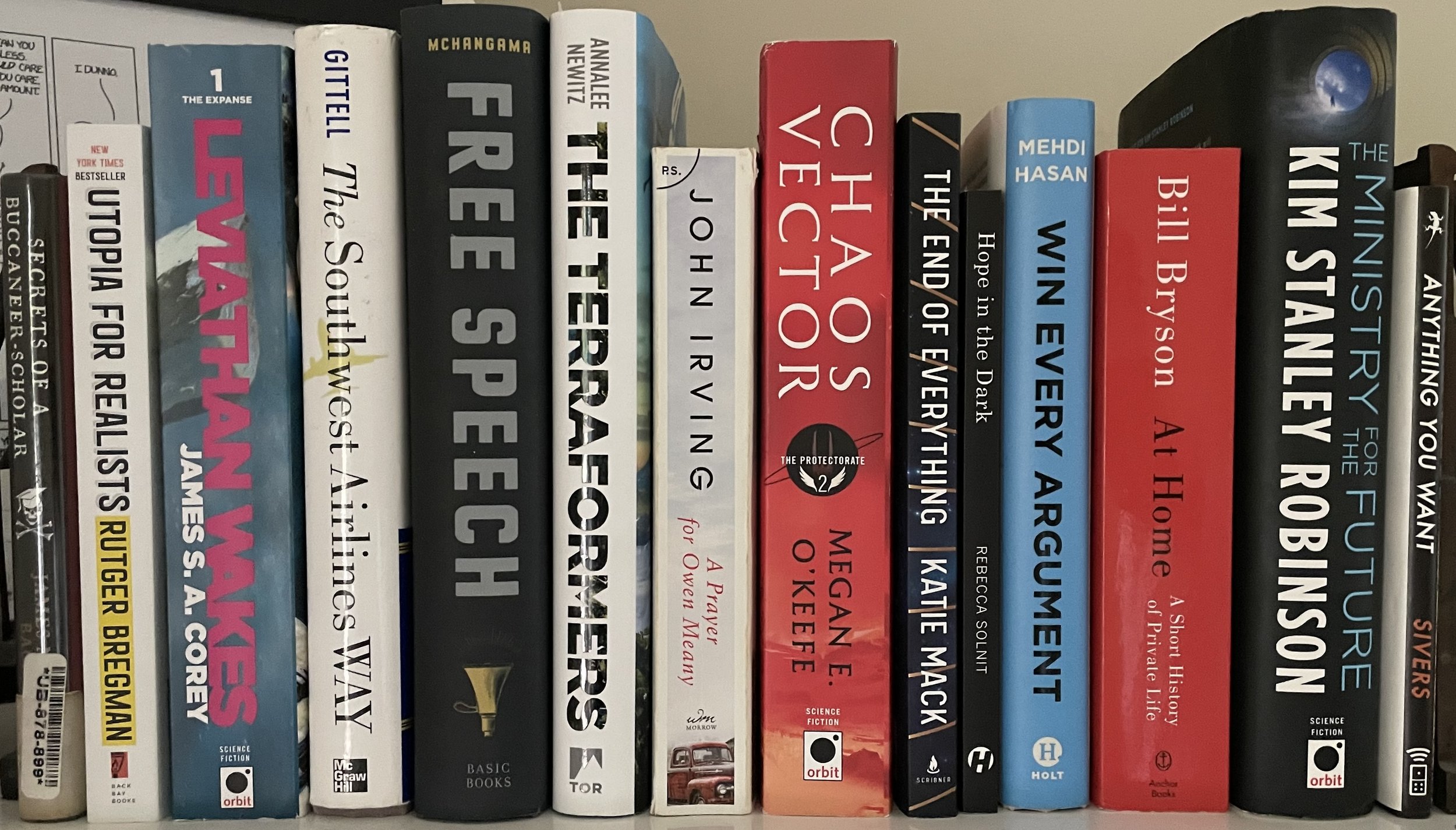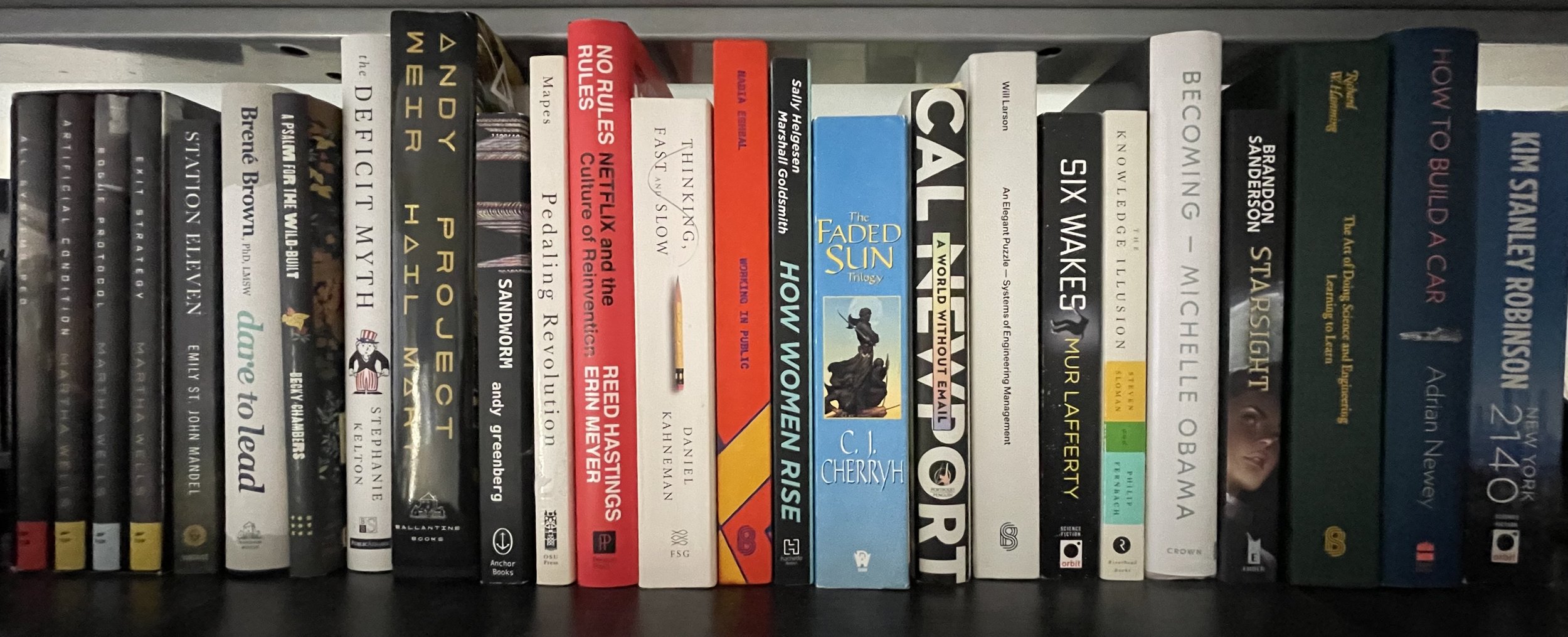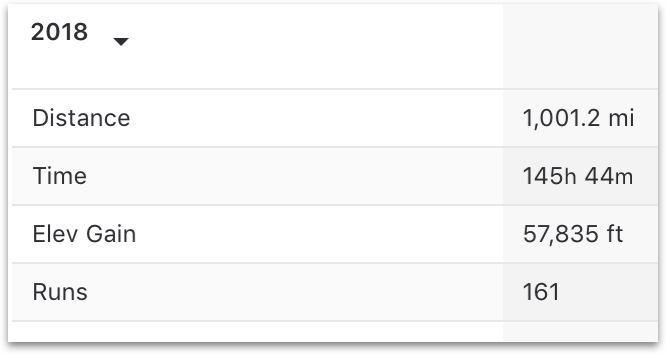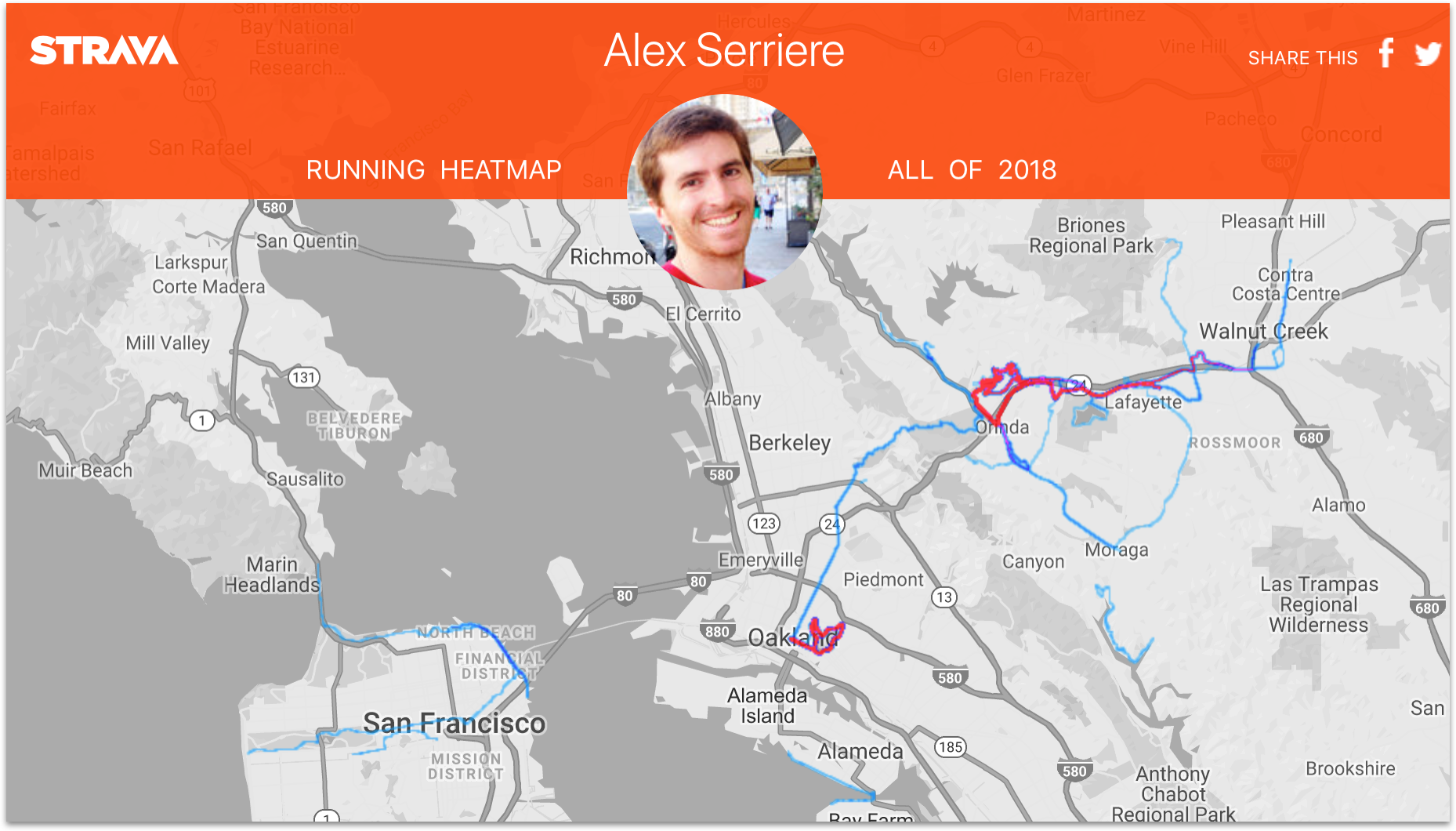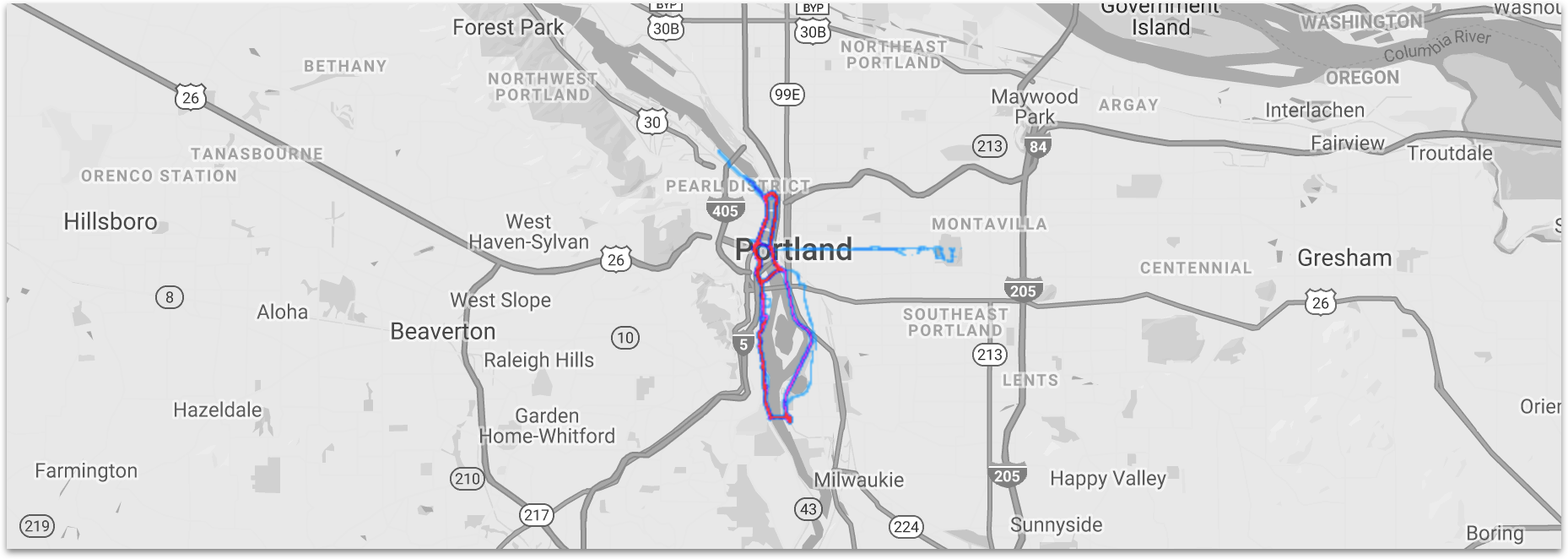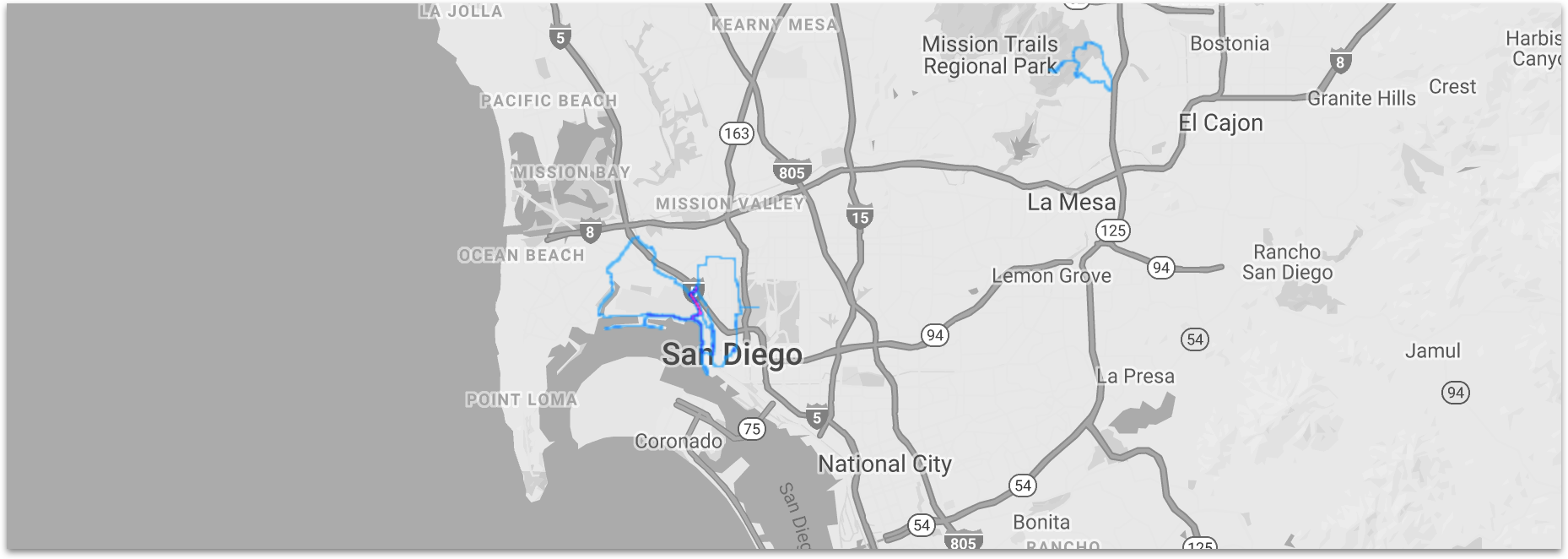I didn't make it through quite as many books in 2022 as I had hoped, but I am pleased that I was still able to make consistent time for reading. I continue to be amused by my ability to become fully engrossed in fiction to the point where I can power through books in one or two sittings. Yet, with non-fiction, my mind wanders as I contemplate each new idea and my meandering pace means it usually takes weeks to finish the books.🤷♂️
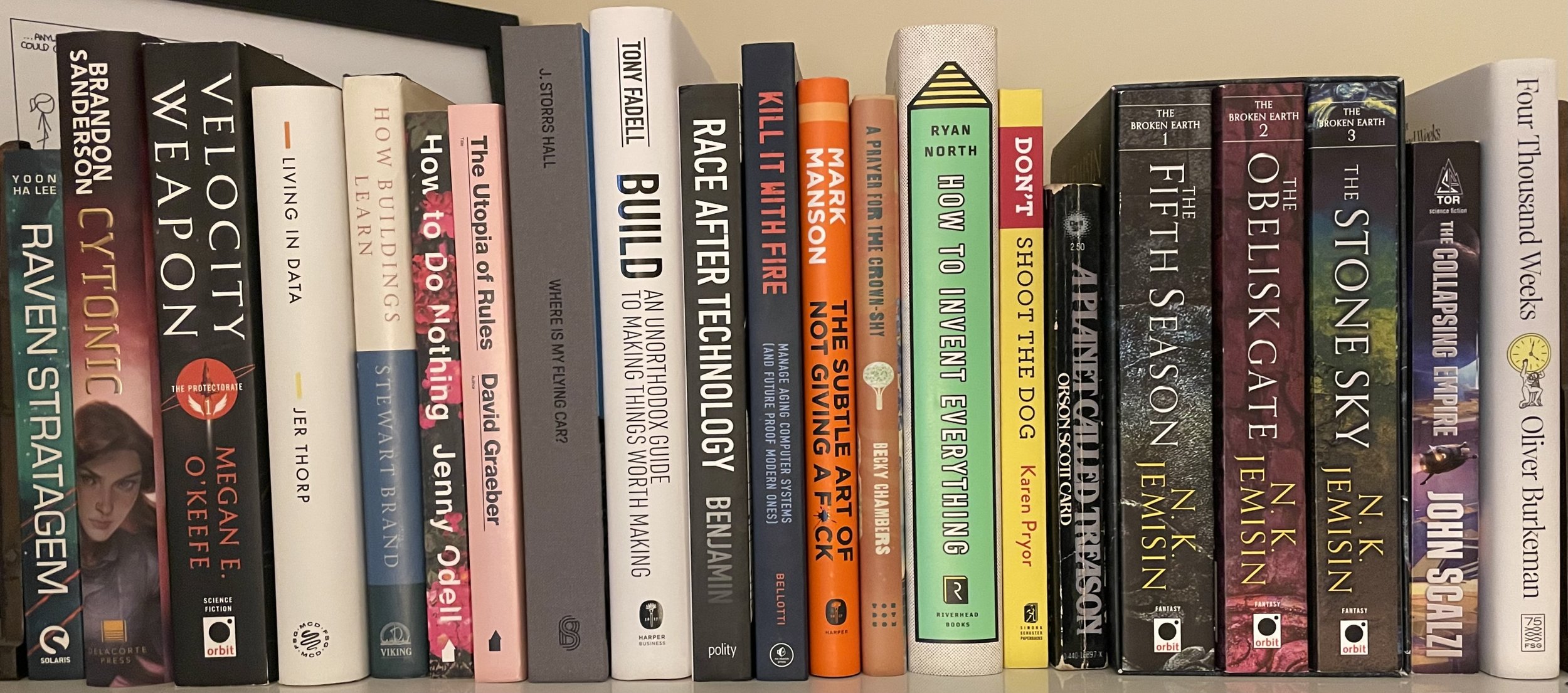
This is the second book in The Machineries of Empire series by Yoon Ha Lee and I really struggled to get through it. I quite enjoyed the first book, Ninefox Gambit, but this one was just boring. Nothing happens!
The third book in Brandon Sanderson's Skyward series and I think it's the weakest of the three so far. It feels like the main character takes an unnecessary detour into a world that is more supernatural than science fiction.
Fantastic book. Loved the concept, fast-paced, and well-written; I look forward to the next one in the series. Recommend!
This book surpassed my expectations. Instead of just being about data visualization, which is what I expected going into it, Jer Thorpe connects us to the human stories behind the data.
I've had this book for ages but only just got around to reading it this year. Actually, this book was one of the few items I rescued from my desk at work when we cleared out the office space after the pandemic. Anyway, turns out that it's a lovely book. For anyone tasked with the upkeep of any long-lived thing, I think the ideas will resonate, but particularly for home-owners battling entropy.
This book didn't really land for me. I appreciate the author's observations about societal pressure to constantly be doing things and how easily you find yourself responding to that pressure. But I guess I wanted more on how to avoid that trap (beyond the simple, "Don't fall into it") as an individual but also as a society.
Thought-provoking to be sure, but I don't agree with Graeber's observations or conclusions. Bureaucracy has lots of problems, but in my view it exists in opposition to violence, not aligned with it.
A great exploration of the many factors that have inhibited the development of flying cars and, to some extent, more dramatic scientific advancement in general. The discussion of energy density and control over energy production rings true, but the author's glass-half-full estimation that roughly 50% of licensed drivers have the faculties for flight strikes me as a compelling reason to avoid future developments around flying cars.
I really enjoyed this memoir, of sorts, by Tony Fadell. It's practical advice, doesn't discount the importance of luck, and what I connected with the most: the creative act of building can, itself, be all the motivation you need.
If you're not familiar with the many ways that structural oppression can be propagated with technology, this book is a good introduction. On the flip side, if you already have some awareness of the potential for bias to be encoded in various machinery, my sense is the author veers a little too close to blaming the tech itself rather than the fallible humans who build and use it.
I'm not sure how useful this book is to folks who aren't specifically working on legacy technology projects, but it offers interesting perspective nonetheless. It's a good guide for embarking on that kind of work and I can imagine returning to it as a reference.
This exceeded my expectations. It works well as a sort of pop-philosophy book with the briefest of introductions to concepts that have been around for ages. It makes the concepts approachable, though I think it would benefit from a few more citations and references for additional reading.
The lovely continuation of the Monk & Robot series by Becky Chambers. If you enjoyed the first book, you will enjoy this one. I certainly did.
This book was an unexpectedly delightful trip through the development of all kinds of civilization-sustaining (creating?) technologies. Humorous and educational, definitely worth packing for your next time-travel adventure.
Practical guidance for anyone wanting to shape the behavior of others when verbal communication is impossible; that includes animals and humans alike. This book misses the mark for me in two ways: (1) it lacks references to peer-reviewed studies and feels a little like folk science. And (2) it's missing any exploration of the ethical quandary associated with using these techniques on people without their consent.
The collective works of Orson Scott Card have had a significant impact on my life and Treason, the edited second edition of this book, is close to the top of my all-time favorites. But I had never read the original and this was a nice trip down memory lane. Reading Card again I am reminded that his lack of empathy outside of his novels is utterly confounding to me. So many of his stories, including this one, deal with having empathy for others, especially those that we do not understand, but Card himself cannot live-up to the ideals of his characters.
These books came highly recommended and with high-profile awards to boot, but ultimately just weren't for me. I appreciate how different this story is from so much other science fiction I've read but the fantasy elements made it an unsatisfying read. Part of what I enjoy about science fiction is when the rules of the universe are sufficiently well-established that I can speculate about what will happen next. But if the rules are ever-changing, as they do in these books, I don't feel like an engaged reader, just a passenger.
I had not read any of John Scalzi's books before but this was quite enjoyable. At some level it's "just" another intergalactic power struggle, but the main plot device is novel and the story is well-told.
I closed out the year with this book and it was just fantastic. It manages to be both philosophical and deeply practical offering thought-provoking ideas about the nature of existence along with day-to-day tactics for navigating this brief moment we call life. Best book of 2022 for me.
